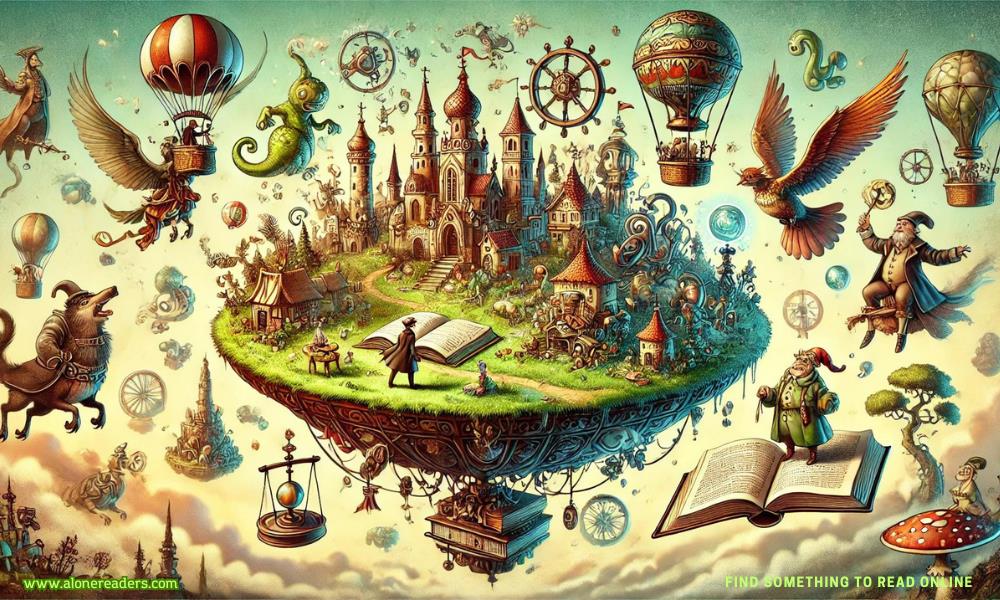
The Discworld series by Terry Pratchett is a monumental feat in the realm of fantasy literature, effortlessly weaving satire, wit, and profound philosophical inquiry into a tapestry of tales set on a flat, disc-shaped world balanced on the backs of four elephants standing on a giant turtle swimming through space. Since the first novel, "The Colour of Magic," was published in 1983, the series has grown to encompass over forty books, each exploring different facets of Discworld with a sharp, humorous lens.
Pratchett’s Discworld is not merely a setting for fantasy adventures but a mirror to our own world. Through the bustling cities, magical academies, and exotic landscapes, Pratchett explores themes of politics, culture, science, and the human condition, making us laugh while also making us think. His ability to parody contemporary societal issues through the quirky, sometimes bizarre antics of his characters is unmatched. Each novel, while part of a larger series, stands alone with its self-contained story, allowing new readers to jump into the series at almost any point.
Characters in the Discworld series range from the incompetent yet endearing wizard Rincewind, to the morally complex and iron-hard Sam Vimes of the City Watch, to the enigmatic and powerful witch Granny Weatherwax. Each character is meticulously crafted with depth and personality, evolving over the series and reflecting aspects of humanity in their virtues, flaws, and idiosyncrasies. Pratchett’s character development is a key strength, providing continuous engagement and emotional investment for the reader.
The series also stands out for its clever use of language. Pratchett’s narrative style is accessible yet rich, filled with puns, allusions, and clever wordplay that reward attentive readers. His prose is light and swift, carrying readers through complex plots with ease and entertainment. This accessibility makes the series a great entry point for young adults into the genre of fantasy while providing enough depth and sophistication to satisfy seasoned readers.
Moreover, Pratchett does not shy away from experimenting with narrative forms and structures, making each book feel fresh and innovative. Whether it’s playing with storytelling conventions in "Pyramids," exploring philosophical themes in "Small Gods," or delving into the mechanics of belief and reality in "Hogfather," Pratchett continually finds new ways to surprise and engage his audience.
The legacy of the Discworld series is vast. It has not only provided foundational reading for generations of fantasy fans but has also influenced the genre as a whole. The series has been adapted into various formats, including television, theatre, and radio, bringing its characters and stories to an even wider audience.
In conclusion, the Discworld series by Terry Pratchett is a masterclass in fantasy writing, blending humor, intelligent commentary, and memorable characters into a deeply immersive and entertaining world. It is a series that offers something for everyone, whether one is looking for pure entertainment, insightful satire, or rich narrative innovation.